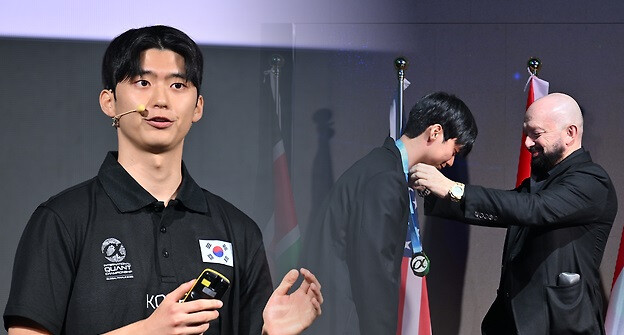
NEW YORK – In a remarkable display of quantitative prowess, a South Korean undergraduate student has triumphed over 80,000 competitors from 142 countries to win the prestigious 5th International Quant Championship (IQC). Kim Min-gyeom, a student at UNIST (Ulsan National Institute of Science and Technology), secured the top prize and $23,000, besting participants from elite institutions such as Columbia and Oxford.
The competition, hosted by global asset management firm WorldQuant, challenges entrants to develop mathematical algorithms to predict stock movements and formulate a robust investment portfolio—a core tenet of quantitative investing, or "quant."
The Power of the Organic Algorithm
Kim's victory was rooted in a highly focused and organic algorithmic strategy, contrasting sharply with the methods of his competitors. While other teams submitted 200 to 300 algorithms, Kim delivered a concise yet potent portfolio utilizing only 32 algorithms.
"I wanted to create a portfolio that was strong when unified, despite the small number of its individual components," Kim explained in a post-victory interview.
His core strategy was a Long/Short Equity model, designed to maximize returns by buying stocks predicted to rise (long) while simultaneously short-selling those expected to fall (short).
Macroeconomics Meets Trading Psychology
What truly set Kim's approach apart was its depth of analysis, extending beyond pure stock data to incorporate macroeconomic conditions and investor sentiment.
Instead of solely relying on historical price and financial statement data, Kim developed a framework that categorized the broader economic environment into four stages—low-rate, high-rate, expansionary, and recessionary—and tailored his trading strategies accordingly. This ability to integrate the "big picture" into high-frequency trading logic provided a significant edge.
Furthermore, Kim successfully integrated "investment psychology" into his code. He utilized a "News Momentum Strategy," which analyzed corporate performance reported in news articles, alongside a particularly effective strategy based on "Implied Volatility (IV)."
Implied Volatility, a metric derived from option prices, reflects the market's collective expectations and fears. Kim’s algorithm mathematically captured the principle that opportunities often emerge when investors are excessively fearful or anxious, analyzing the gap between moments of panic and periods of relief.
Human Insight Prevails Over AI Agents
A noteworthy aspect of the championship was the underperformance of pure AI-driven strategies. A representative Chinese team, for instance, employed an advanced AI agent for its investment strategy. While the model performed well in simulations, its real-world application during the competition yielded unexpected and negative results.
Kim emphasized that while mathematical and quantitative reasoning—the domain of AI—is crucial, success ultimately hinges on human philosophy and insight.
"It's about having your own philosophy and unique insight. That's a part only humans can provide," he stated.
Having achieved this global accolade in just half a year since first learning about quant investing, Kim, who now serves as a consultant for WorldQuant, attributes his rapid success partly to the foundational knowledge gained from his studies in business administration. Looking ahead, he cited the philosophy of Fields Medalist June Huh, emphasizing the importance of "groundless confidence" and continuous personal growth over celebrating a single achievement. His victory is seen as a major boost for South Korea's burgeoning reputation in financial engineering and algorithmic trading.
[Copyright (c) Global Economic Times. All Rights Reserved.]




























